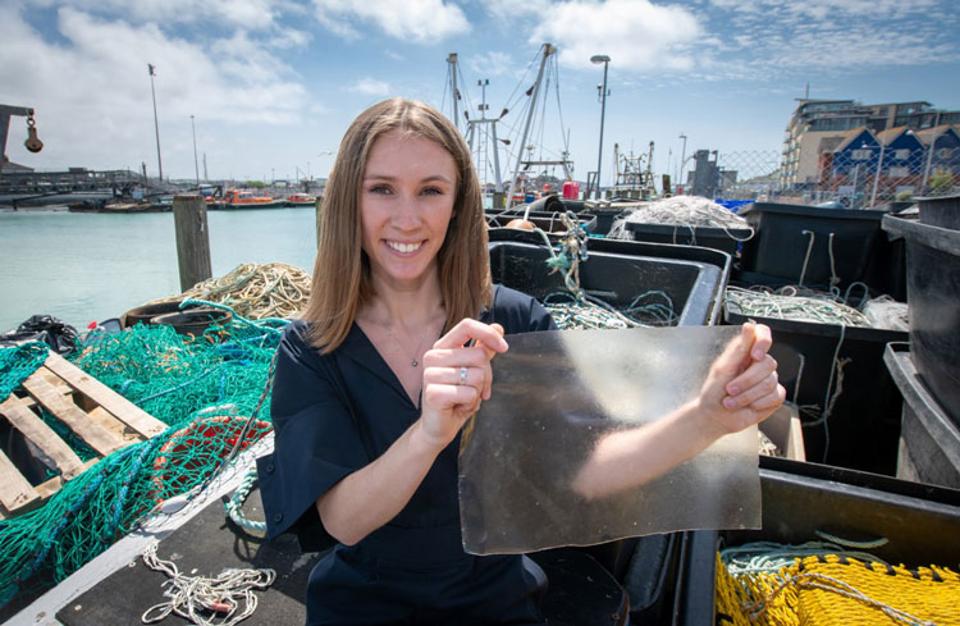The crazy new invention that has the potential to change the plastic industry for good!
With the world waking up and taking notice of our huge plastic problem, bioplastics are being developed from numerous things. We have corn bioplastics and cactus bioplastics, but not yet a bioplastic developed from our own waste. Lucy Hughes is the first to combine her bioplastic ideas with our day to day waste, using fish scales that would otherwise end up in the trash.
Lucy Hughes is a former Product Design student at the University of Sussex. She states that she wanted to make use of things typically thrown away, which is what drew her to visit a fish processing plant near her school. Hughes started by “grinding fish scales in her kitchen” and her bioplastic was born after many failed attempts. She also experimented with the material’s ability to compost at home as well as its ability to be used for numerous uses like as food wrappers or as a carry bag.
Her material has been coined MarinaTex and has won the 2019 International James Dyson Award. Her prize includes approximately $39,000 to help develop and market her fantastic invention. MarinaTex has also won several other 2019 awards including the Best Circular Economy Design at the Sussex Design show. Lucy sees that there is “value in waste” and she clearly demonstrates this with MarinaTex.
Lucy mentions that future steps for MarinaTex after winning this prize include gaining additional funding for more research into mass manufacturing, protecting the material legally and acquiring necessary certifications to make this product sustainable and successful around the globe.
MarinaTex itself is translucent and movable, much like traditional plastic. It’s made from 100% natural ingredients like fish scales and algae. It can be composted at home and it will biodegrade within 4-6 weeks, a relatively short time span. Many traditional bioplastics require an industrial composting facility to break down, and consumers often throw their bioplastics in the trash, not understanding that it won’t break down safely in a landfill. The James Dyson website also states that the material feels like plastic but is certainly stronger. Production for MarinaTex doesn’t need to exceed 100 degrees, requiring much less energy than typically needed for a normal plastic product on the market today.
MarinaTex is also able to be produced many times using very little fish waste. The waste from one Atlantic Cod can produce up to 477 bioplastic bags! If MarinaTex were developed using all the fish waste from the UK in one calendar year, it could produce up to 1,292,552,500 bioplastic bags! See the graphic below for a detailed breakdown of the fish waste needed to produce MarinaTex bioplastic bags.
What do you think of MarinaTex? Let us know in the comments below!
Sources:





